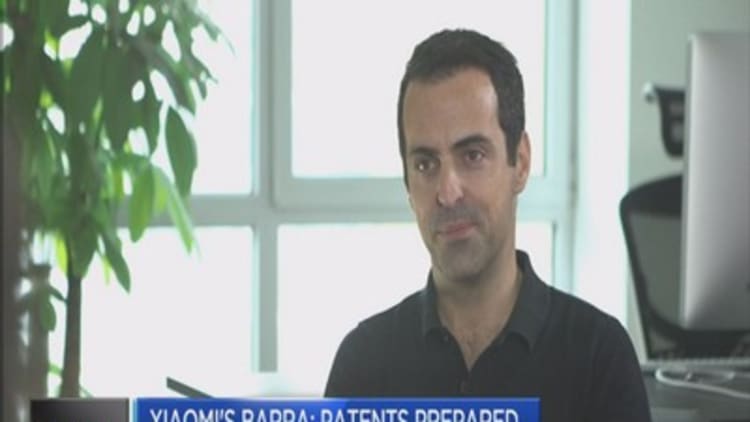IBM retained its top spot in U.S. utility patents for a 23rd-consecutive year, followed by Samsung and Canon, which maintained their numbers 2 and 3 slots, according to IFI Claims Patent Services.
Within the top 10, Qualcomm, Alphabet's Google, LG Electronics and Intel moved up the list, while Sony and Microsoft moved down, but not solely because they generated fewer patents.
Seismic shifts are occurring in the way some patenting powerhouses hold their patents, said IFI, whose annual rankings are based on its analysis of utility patents granted by the U.S. Patent and Trademark Office.
"Rather than keeping all corporate patents under a single registration, some companies are choosing to spread their portfolios across multiple entities," said Larry Cady, senior analyst at IFI Claims. "This is why we are seeing such dramatic movement this year with Microsoft and Panasonic, which all started assigning some patents to newly formed holding companies."
In 2015, Microsoft Technology Licensing was granted 1,956 utility patents, dwarfing Microsoft's 465, and Panasonic Intellectual Management won 1,474 patents, while Panasonic was awarded just 300.
Google Technology Holdings, a relatively new entity, was awarded 360 patents — not nearly as many as Google with 2,835, but enough to signal to Cady that Google is adopting a similar approach. It's a tactic long employed by Samsung, HP, AT&T and others, and IFI expects these companies to continue to accumulate more patents via these relatively new entities.

The trend makes understanding the landscape of intellectual property even more complex. IFI has analyzed patents for more than 60 years and its long-term editorial policy is to publish the number of patents by each legal entity, rather than trying to group them together by parent company.
"Some people would like to see how much intellectual property is fed into a parent company stock ticker — we can't provide that," said Cady. "IFI is looking at ways of aggregating the data under the parent company, but we do not have anything to announce at this time."
IBM invests 6 percent of its revenue in research and development and has no plans to change the way it holds its patent portfolio.
"There is no reason to separate it from our core business because that is in fact how we operate our core business," said Bernie Meyerson, IBM's chief innovation officer. "It is really a tremendous focus area for us."
In 2015, IBM was granted 7,355 patents, with more than 2,000 in areas related to cognitive computing and the company's cloud platform. Meyerson highlighted two specific patents as good examples of how IBM's investment in R&D paid off when it came to developing cutting-edge intellectual property.
A group of scientists from IBM Research's lab in China patented a system that helps machines interpret emotion-laden words so they can better listen and talk with humans (Patent US9117446).
"We are making intelligence accessible," Meyerson said.
IBM's Silicon Valley team was granted Patent US8977583, which protects a new kind of processor inspired by the structure and function of the human brain.
"It's much more similar to the brain than any other piece of computer hardware," Meyerson said. The processor can adapt, learn and reconfigure in real time, and is 10,000 times more energy efficient than conventional chips.
The U.S. patent office issued 298,407 utility patents in total in 2015, down just 1 percent from 2014. One company shot up the list: Amazon Technologies improved its ranking from No. 50 in 2014 to 26th in 2015.




